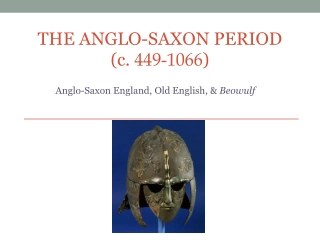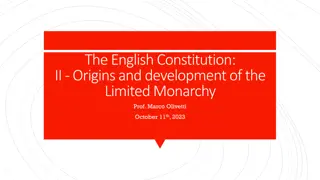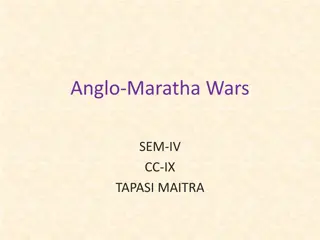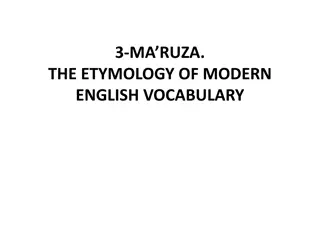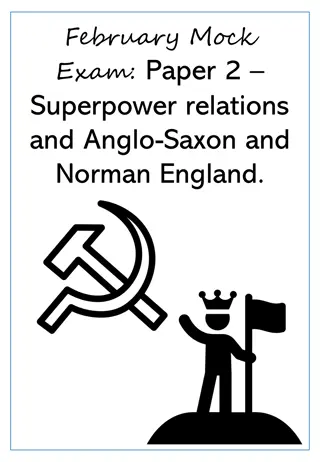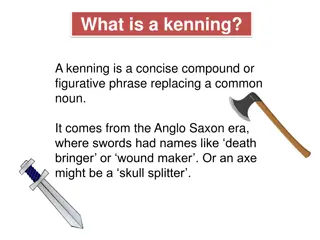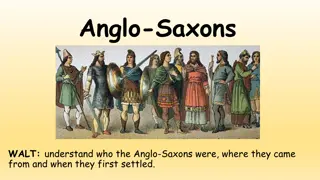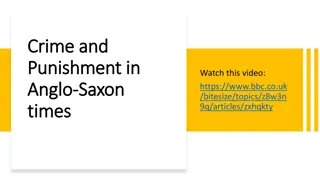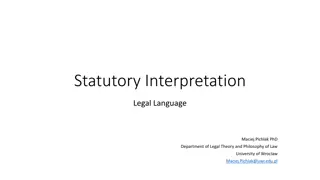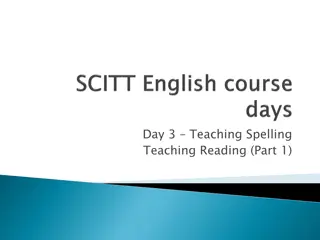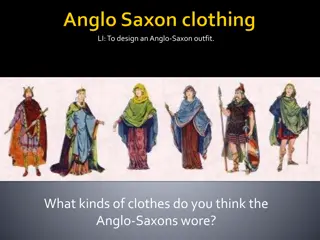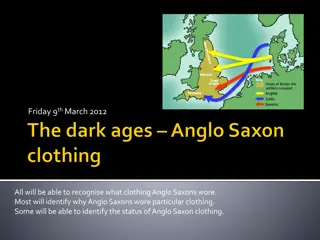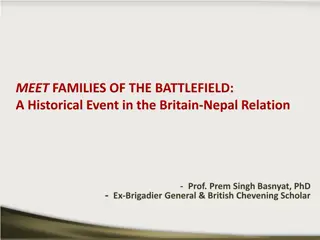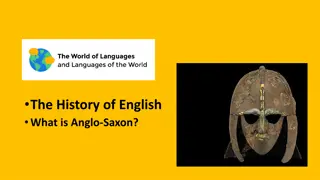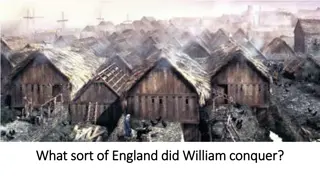
Explore Anglo-Saxon Culture: Clothing, Kingdoms, and Place Names
Discover the rich history of Anglo-Saxon culture through their clothing, kingdoms, and place names. Learn about powerful adjectives, significant people, and the meanings behind town names. Uncover the roots of Anglo-Saxon settlements and the influences on modern-day Britain.
Download Presentation

Please find below an Image/Link to download the presentation.
The content on the website is provided AS IS for your information and personal use only. It may not be sold, licensed, or shared on other websites without obtaining consent from the author. If you encounter any issues during the download, it is possible that the publisher has removed the file from their server.
You are allowed to download the files provided on this website for personal or commercial use, subject to the condition that they are used lawfully. All files are the property of their respective owners.
The content on the website is provided AS IS for your information and personal use only. It may not be sold, licensed, or shared on other websites without obtaining consent from the author.
E N D
Presentation Transcript
Anglo Saxon Clothes 27.01.21
Adjectives powerful Historical terms runes Anglo-Saxons word mat skilful Thatched wooden house farming Sutton Hoo adventurous Mercia hunting East Anglia fierce Sword strong Helmet bold Coins dangerous Shield scavenged Soldier clever Long boat attack Jewellery defend Ship burial invaders artefact raiders village settlement tribe Significant people King Offa Alfred the Great St. Bede Edward the confessor
Anglo-Saxon Kingdoms The British fought hard against the Anglo-Saxons but by about 600AD they had either been forced to escape or had been taken as slaves. Those who escaped retreated mainly to Wales and Cornwall which never came under Anglo-Saxon rule. The rest of Britain was divided into 7 kingdoms: 1. Northumbria 2. Essex 3. Wessex 4. Sussex 5. Mercia 6. Kent 7. East Anglia But where did these place names come from? What do they mean?
Root Meanings Many of the names of towns and villages in Britain also came from the Anglo- Saxons. Have you ever noticed that many place names share some similarities? For instance, how many place names can you think of which have the endings shown on the sign posts below? Use your googlemaps to make a list for each type of ending. What do these endings mean? -ford - worth -ham
Anglo-Saxons name for towns was burh. The word 'burh' still appears in place names in Britain - Peterborough and Scarborough are two examples. The first Anglo Saxon Villages were often named after the Chieftain (Leader of the village). This made it clear which tribe the village belonged to. These places often have the letters 'ing' of 'folk' somewhere in their name, often at the end. The first part of the name was most likely to have been the name of the local chieftain. The people who lived in the 'village' of Hastings were 'Haesta's people'. Haesta was the chieftain. The people who lived in the 'village' of Reading were 'Redda's people'. Redda was the chieftain .
Anglo Saxon Word Examples of place name Meaning barrow bury wood fortified place Barrow-in-Furness Banbury Shaftesbury Stamford ford shallow river crossing ham hamm (a different way of spelling of ham) hurst village enclosure within the bend of a river' Birmingham Southhampton, Buckingham wooden hill Staplehurst, Chislehurst leigh / lee / ley mer /mar /mere ney port stead /sted stow / stowe forest clearing lake island market town place meeting place holy place enclosed village / farmstead / manor Henley Cromer Bridport Stanstead Stowmarket, Padstow ton / tun Tonbridge, Alton, Luton wick / wich Produce of a farm Greenwich (fields) Woolwich (sheep) Butterwick (dairy)
Anglo-Saxon Vocabulary These county names mainly come from the names and geographical location of the Anglo-Saxons who first settled here. Places with the following endings or have these in their name are named after Anglo-Saxon words. For example: Scarborough Middlesbrough, Bradford, Birmingham, Norwich, Oxford, Haworth, Huddersfield, Wakefield, Windermere, Nottingham, Northampton, Southampton. All these places are named after the Anglo-Saxon words. burh - town ley - clearing bury fortified place mer/mere pool or lake croft small enclosure ney - island field open land stow/stowe meeting place/holy place ford river crossing ton/tun - farmstead ham/m - village wic/wich - farm ings - ________ s people worth/worthy - enclosure
Places named after Gods Other Anglo Saxon villages were named after pagan gods or goddesses. Place names begining with Wednes, Wodnes and Woodnes come from the name of Woden, a war god. Examples include Wednesfield in the West Midlands and Wodnesfeld in Essex. Both mean Woden's field. Tuesley in Surrey was named after the god Tiw. Thursley in Sussex is named after the god Thunor and means Thunor's grove Counties The Saxons settled in areas of Essex (East Saxons), Sussex (South Saxons), Middlesex (Middle Saxons), and Wessex (West Saxons). The Jutes settled mainly inKent. They did not call themselves 'the Jutes', they referred to them selves as 'the Kentings', that is the men living in Kent. The Angles settled in East Anglia
Task Today you are going to use the map of the UK ( I have uploaded 2 maps use one for each activity). Activity 1: find and label the seven kingdoms. Activity 2: find and label a variety of places which are named after the Anglo-Saxon words. These places end in ford, bury, field or wich (look at the table on slide 7 to help you). For example: Bradford, Norwich, Birmingham, Stratford, Shrewsbury, Glastonbury, Canterbury, Oxford, Stamford Any problem email me: r.metcalf@worthvalleyprimary.co.uk

